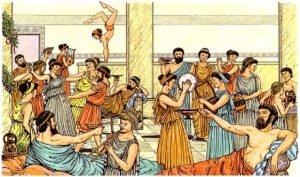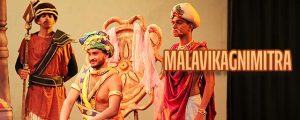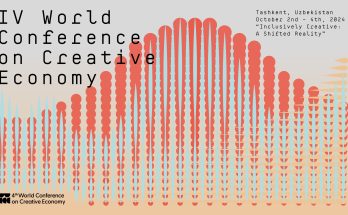
By Monji Bose
As I finish the last episode of my latest K-drama binge on Netflix, the world around me is in a chaotic standstill. It’s an environment of constant panic, caused by a previously obscure virus Covid 19, that has suddenly risen to Godzilla-like proportions of infamy and a harbinger of what now feels like a terror with no end in sight. It was just now that I came to the realization of how, in times like these, it is only art and the entertainment industry, previously discounted as frivolous, that people are surviving and depending on, to hold onto their sanity and some stolen moments of comfort.
“The world is a stage, but the play is badly cast,” said the inimitable and irreplaceable Oscar Wilde. These words just hit a newly discovered raw spot deep inside my soul, like a dart finding its bulls’ eye. Just like almost all fundamental components of modern- day culture, we owe the origins of theatre, the world’s first 3D entertainment as well, to Ancient Greece. Its early roots were frenetic cult ceremonies performed by devotees of Dionysus, Greek God of fertility and wine. His female followers would dance themselves into a frenzy, symbolizing the phallic, raw passion, sexuality, pleasure and hedonism. You can send them a silent prayer of gratitude, as you enjoy watching Beyonce and Rihanna sing and move their way into your hearts.
Sanskrit Connection: Remembering Kalidasa

There is speculation that theatre was enjoyed in India and China hundreds of years before the Greeks, but no credible documented evidence. However, it is considered to date back to about 5000 years, the earliest known enjoyed rendition being Sanskrit theatre, which transpired sometime around the 2nd century BC, going on to blossom between the 1st and 11th centuries. Our strong culture of dance, song and recital performance, which continues to reflect even in our modern-day cinema, was prevalent then, too. The pioneering spearhead was Bharat Muni, who authored the 36 volumes of Natyashastra. Kalidasa, too, was a trailblazing Sanskrit playwright, some of his legendary works being the Malavikaginimitra and Abhijnanashakuntala. Shudraka was one of the first to introduce comedy into the normally intense and emotion driven Sanskrit theatre, known for one of the first Sanskrit comedies, Mricchakatika. This ancient work was later adapted by a New York theatre group on 1924. Later on as colonialism spread, Western theatre began to influence and seep into traditional the tradition ancient style, as art all over the world began to amalgamate and derive influence from different cultures and styles.
Going back, to the more archived chronicling of the Western evolution of theatre and acting as a performance art, eventually, in Greece it started to grow into a more structured form, when it evolved into something more along the lines of civilized drama, involving song and dance, and visual entertainment, no longer just an appeasement to the divine.
Thespis, a priest of Dionysus, who birthed modern day theatre in the sixth century BC as he introduced the engagement of dialogue with the chorus, which eventually allowed it to become a visually engaging form of storytelling, bringing in the essential components of life, tragedy, joy, and comedy. If we are to really break it down, there are really only a handful of narratives/plots in the world. Romantic/doomed love, father/son strife, daughters and wives rebelling against authoritarian male family heads, ego clashes between men of power, jealousy and envy between women, romantic love triangles, man’s greed and ambition to conquer the world and such, that we read even today in most novels, Netflix and Amazon produced viral TV shows and cult favourites – they are all basically a rehash of these ancient plot lines.
This ancient art form went from strength to strength through the third and fourth century BC as the Greeks explored tragedy, comedy, and eventually satire, and they refined the creative process as audiences began to grow. During the second century BC, the Romans caught on too, as it started to flourish under powerful patronage. Because of Greece’s strategic position in the Mediterranean Sea, it eventually started to spread to neighboring countries, and eventually throughout Europe, and other parts of the world, and became a much loved and popular form of pleasure and amusement.
Royal courts around the world all have one thing in common, the jester. Whether it is Akbar’s Birbal, Roland the Farter in the 12th century, or Lord Minimus, the Queen’s dwarf in the 17th century. Talented commentators who brought comic relief in times of trouble and possibly the only one, allowed to insult the monarch and still walk around with his/her head, the next day.
Reality or Escape?
But what motivates people to act, from an evolutionary point of view?
Most thespians say they were born actors, their early childhood spent in copying and modelling themselves on others, constant role-playing, an inborn trait, that they later trained and honed into a craft, and with some good luck, trade.
Science and invention can be explained as man’s need to understand his existence and his history in order to further our race and its ambitions. However, art and human creativity is a funny thing. An intrinsic element of our biology, but of no explicit utility in our evolutionary process. Theatre, even more so. We write and paint to relieve ourselves of our emotions, an outlet to our feelings. We create music for rhythm, and to create vibration and energy, and in today’s times, also as social commentary. We dance to amplify and express that.
But what is the motivation behind imitation and role- play, which is really the basic motivation behind acting as a creative form? Is it an inherent form of human escapism, where none of us truly want to be ourselves? Aren’t we all wearing masks or multiple masks for different situations and people anyway, while all the time creating our own world of theatre, as Shakespeare and Wilde have wisely pointed out? Is acting a form of art, or is it a personal need for escape? To live vicariously through others, to live a life that’s not your own, get to be a person you’re not? A way to let go, in a world without rules, moralities or law? Sounds like the sweet sound of true freedom for a trapped soul. As Friedrich Nietzsche said, “No artist tolerates reality.” So, the actor is an artist, but may not have been born one.
As a consumer, few things bring me greater pleasure and inspires awe, than when I watch Cate Blanchette turn into Bob Dylan, or Daniel Day Lewis bring Abraham Lincoln to life, or watch a bleeding Shah Rukh Khan finally clasp his soulmate’s hand and pull her into his train compartment forever and for always. Or politicians making their elaborate promises and their many reassurances and persuasions of a perfect world.
And I’m sure it brought them the same amount of joy to be those people and live that moment, before they went back to their real lives, scandals, pressures, disappointments and paychecks.
Are actors artists or conmen? Are they expressing or escaping? Or, is it all the same thing? As long as it brings any entertainment, joy, relief or pleasure to anyone, in this morbid reality of our times, it has my vote.
Well, signing off, yours truly, forever drama queen.

(Monjorika Bose is a freelance writer based out of Delhi. Her interests include lifestyle, literature, art, food and humour – not necessarily in that order. She hopes to change the world or at least make it a more bearable place, through one joke and one essay at a time.)
Author Profile
- India Writes Network (www.indiawrites.org) is an emerging think tank and a media-publishing company focused on international affairs & the India Story. Centre for Global India Insights is the research arm of India Writes Network. To subscribe to India and the World, write to editor@indiawrites.org. A venture of TGII Media Private Limited, a leading media, publishing and consultancy company, IWN has carved a niche for balanced and exhaustive reporting and analysis of international affairs. Eminent personalities, politicians, diplomats, authors, strategy gurus and news-makers have contributed to India Writes Network, as also “India and the World,” a magazine focused on global affairs.
Latest entries
 DiplomacyJanuary 5, 2026India walks diplomatic tightrope over US operation in Venezuela
DiplomacyJanuary 5, 2026India walks diplomatic tightrope over US operation in Venezuela India and the WorldNovember 26, 2025G20@20: Africa’s Moment – The Once and Future World Order
India and the WorldNovember 26, 2025G20@20: Africa’s Moment – The Once and Future World Order DiplomacyOctober 4, 2025UNGA Resolution 2758 Must Not Be Distorted, One-China Principle Brooks No Challenge
DiplomacyOctober 4, 2025UNGA Resolution 2758 Must Not Be Distorted, One-China Principle Brooks No Challenge India and the WorldJuly 26, 2025MPs, diplomats laud Operation Sindoor, call for national unity to combat Pakistan-sponsored terror
India and the WorldJuly 26, 2025MPs, diplomats laud Operation Sindoor, call for national unity to combat Pakistan-sponsored terror







